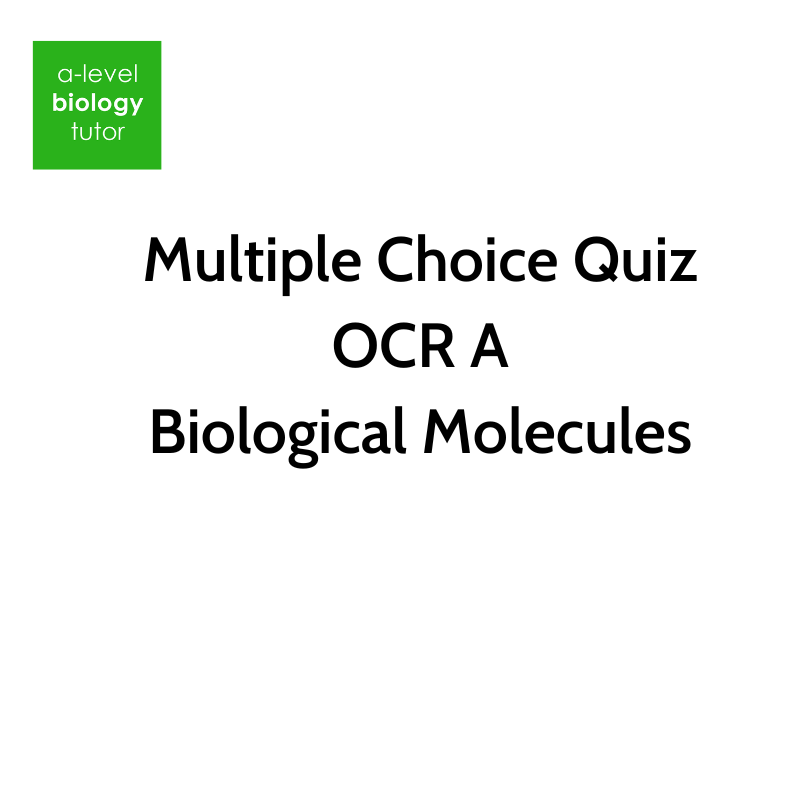A level Biology: Biological Molecules
Find Biological Molecules exam questions from A level past papers and other useful resources below
Biological molecules is a key foundational module. Understanding different types of molecules and their general properties will help you enormously in making sense of other topics within A level Biology. Make your life easier by getting a good grasp of this content as early as possible in your studies.
To master this topic area, you will need to:
Understand some general concepts from chemistry, including hydrogen bonding, condensation reactions, and polymers. These concepts apply across many different types of molecules.
Be confident in identifying (and drawing) the four types of carbon-based biological molecules: Carbohydrates, Lipids, Proteins, and Nucleic acids. You will need to know what types of atoms they contain.
Understand how the structures and properties of these molecules relate to their function. Make sure you really understand the relationship between the molecule’s structure and its function; just memorising a list of facts won’t be enough.
Appreciate the roles of water and inorganic ions in biological processes.
Learn about some laboratory tests which are used to test for different biological molecules.
One of the challenges of this module is that it’s difficult to learn about the chemistry concepts without using familiar molecules as examples, but it’s hard to become familiar with the molecules before you understand the chemistry concepts. For this reason it can be helpful to re-study areas as you progress your familiarity and understanding.
Top tip: Biological Molecules content is nearly identical across A level exam boards, including for AQA and OCR A. So you can use resources from any board; they will be just as helpful.
Revision resources:
Want more? Other A level biology topic resources can be found from the main Free Revision Resources page.












